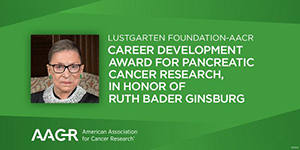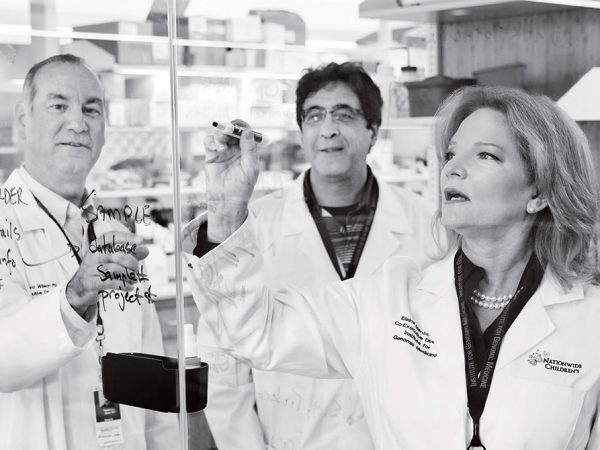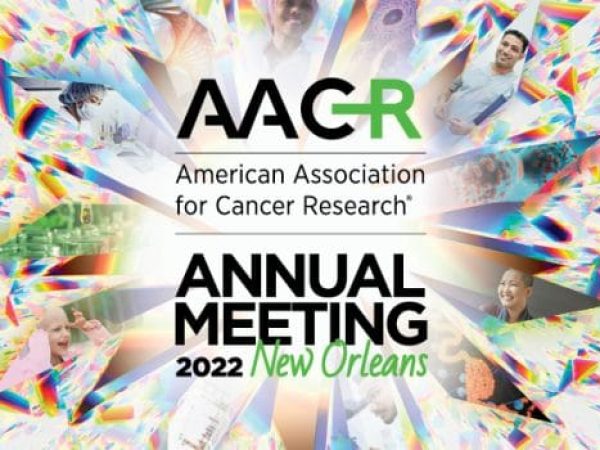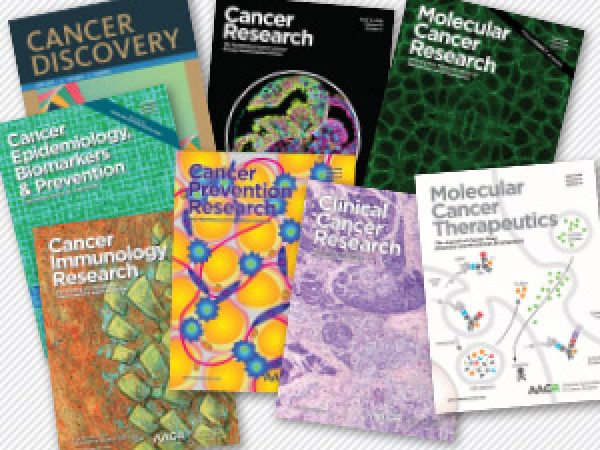Diversifying the Workforce: The Lustgarten Foundation and AACR Offer Career Development Award for Underrepresented Researchers
Racial/ethnic inequities in cancer are well documented. Not only are Black Americans more likely to die of cancer than white Americans, but Black and Hispanic individuals are also underrepresented in the biomedical workforce due to longstanding systemic racism and inadequate training, mentorship, and support. Increasing representation in the biomedical workforce would have many benefits, including reducing implicit biases and cultural incompetency in the treatment of minority patients with cancer, as well as ensuring the inclusion of diverse perspectives and enhancing innovation and creativity in cancer research.
Disparities in research funding represent a significant barrier for researchers from underrepresented racial/ethnic groups, whose NIH funding rate was 7.5 percent lower than that of white researchers between 2002 and 2016. This not only limits research opportunities, but also negatively impacts promotion and the attainment of tenure.
The American Association for Cancer Research (AACR) has partnered with the Lustgarten Foundation to offer the Lustgarten Foundation-AACR Career Development Award for Pancreatic Cancer Research in Honor of John Robert Lewis, the civil rights icon and long-term congressman who died of pancreatic cancer last year.

This $300,000 grant will support an early-career pancreatic cancer researcher from an underrepresented racial/ethnic group as a step toward increasing diversity and inclusion in cancer research. The deadline for applications is February 11.
By partnering with Lustgarten to offer this career development award for pancreatic cancer research, the AACR hopes to support underrepresented researchers and help promote racial and ethnic equity in cancer research.
Increasing diversity in the biomedical workforce begins with improving training and mentorship for underrepresented students. This can be addressed through pipeline programs, which are designed to provide mentorship, career skills, and professional support to underrepresented students at the early stages of their education and careers.

At last October’s AACR Virtual Conference on the Science of Cancer Health Disparities in Racial/Ethnic Minorities and the Medically Underserved—an annual conference launched by the AACR in 2007 to help address and ultimately eliminate cancer health disparities—Alden Landry, MD, MPH, discussed his experience of participating in pipeline programs throughout his journey to becoming an emergency medicine physician.
Landry first enrolled in a pipeline program while he was a college student at Prairie View A&M University, a historically Black university. He describes the program, which was held at the University of Alabama, as integral to his growth.
“It was [an] opportunity for me to be immersed around individuals who looked like me, who had similar backgrounds as me, and who also had similar interests as me,” Landry explained in his presentation.
Through shadowing and mentorship, Landry was able to gain exposure to medicine and become accustomed to the culture of the biomedical community, which he noted was very different from the diverse communities of his inner-city high school and historically Black university.
“Ultimately, that program led to me applying to medical school…and matriculating at the same institution [where] I participated in that summer program,” he said. Landry continued to participate in pipeline programs as a medical student and as a resident. He credits much of his success and interests to the opportunities, mentorship, and support he received from these programs.

Pipeline programs are an important mechanism for increasing diversity; however, training and recruiting individuals from diverse backgrounds is just one step toward achieving racial equity in the workforce, as many underrepresented researchers and physicians continue to face barriers throughout their careers.
Additional priorities for universities should include increasing representation in leadership positions, embedding diversity and inclusion into the mission of the university, and tracking data on representation, explained Joan Reede, MD, MPH, MBA, in a discussion with Landry. Reede and Landry encouraged individuals within the biomedical field to serve as mentors and sponsors, extend opportunities to underrepresented individuals, and hold organizations accountable for achieving racial equity.
“All of us have a role in challenging the status quo,” Reede noted.
For more information and to apply to the Lustgarten Foundation-AACR Career Development Award for Pancreatic Cancer Research in Honor of John Robert Lewis: https://www.aacr.org/grants/lustgarten-foundation-aacr-career-development-award-for-pancreatic-cancer-research-in-honor-of-john-robert-lewis/

In addition to this funding opportunity, the Lustgarten Foundation and the AACR are also offering the Lustgarten Foundation-AACR Career Development Award for Pancreatic Cancer Research in Honor of Ruth Bader Ginsburg to support an early-career female pancreatic cancer researcher. For more information and to apply: https://www.aacr.org/grants/lustgarten-foundation-aacr-career-development-award-for-pancreatic-cancer-research-in-honor-of-ruth-bader-ginsburg/



